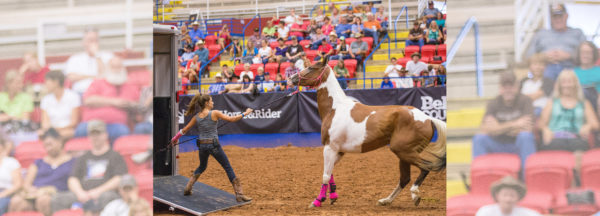Wanted: Problem Horses for Clinton to Train

We’re on the hunt for horses for Clinton and his clinicians to work with during training demonstrations at our Walkabout Tours. Throughout each tour, Clinton works with his personal horses as well as local “problem” horses in a variety of demonstrations to explain how to build a safe, fun partnership with a horse and how to advance your performance.
2019 Walkabout Tour Locations:
- March 2nd and 3rd – Williamston, NC – Senator Bob Martin Arena
- April 6th and 7th – Redmond, OR – Deschutes County Fair and Expo Center
- May 18th and 19th – Des Moines, IA – Iowa State Fairgrounds
Training demonstrations focus on:
- Colt Starting – a horse that has never been saddled or ridden
- Spooky Horses – a horse that is reactive, spooky and fearful
- Cantering With Confidence – a horse that cannot canter on a loose rein
- Trailer Loading – a horse that refuses or is scared to get on a trailer
If you have a horse that is between the ages of 2 and 10 years of age that you need help training, submit an application for consideration.
Please note that only owners whose horses are considered for the training demonstrations will be contacted.
Learn more about the Walkabout Tour, including a complete schedule of events and ticket information on our website.
